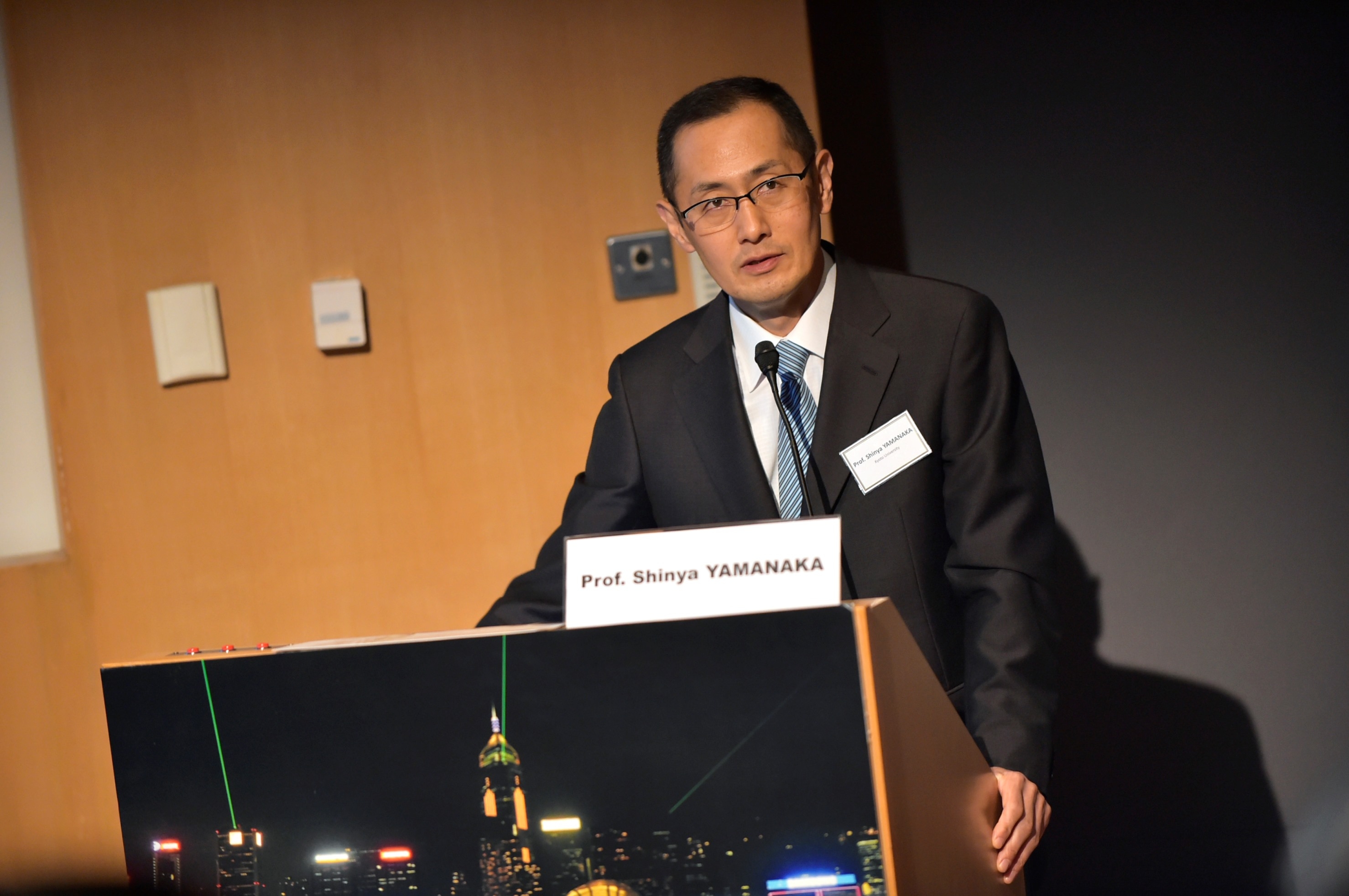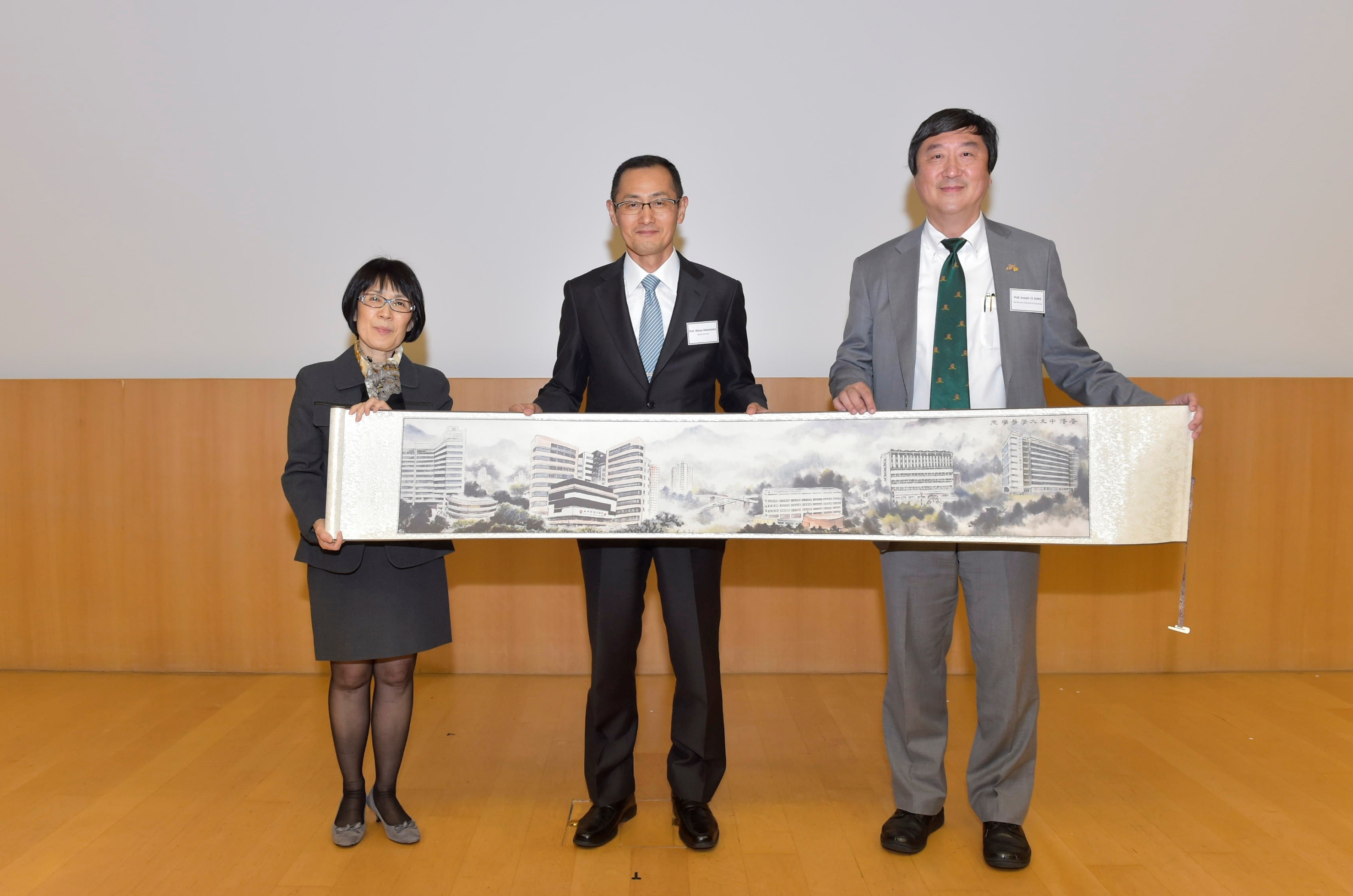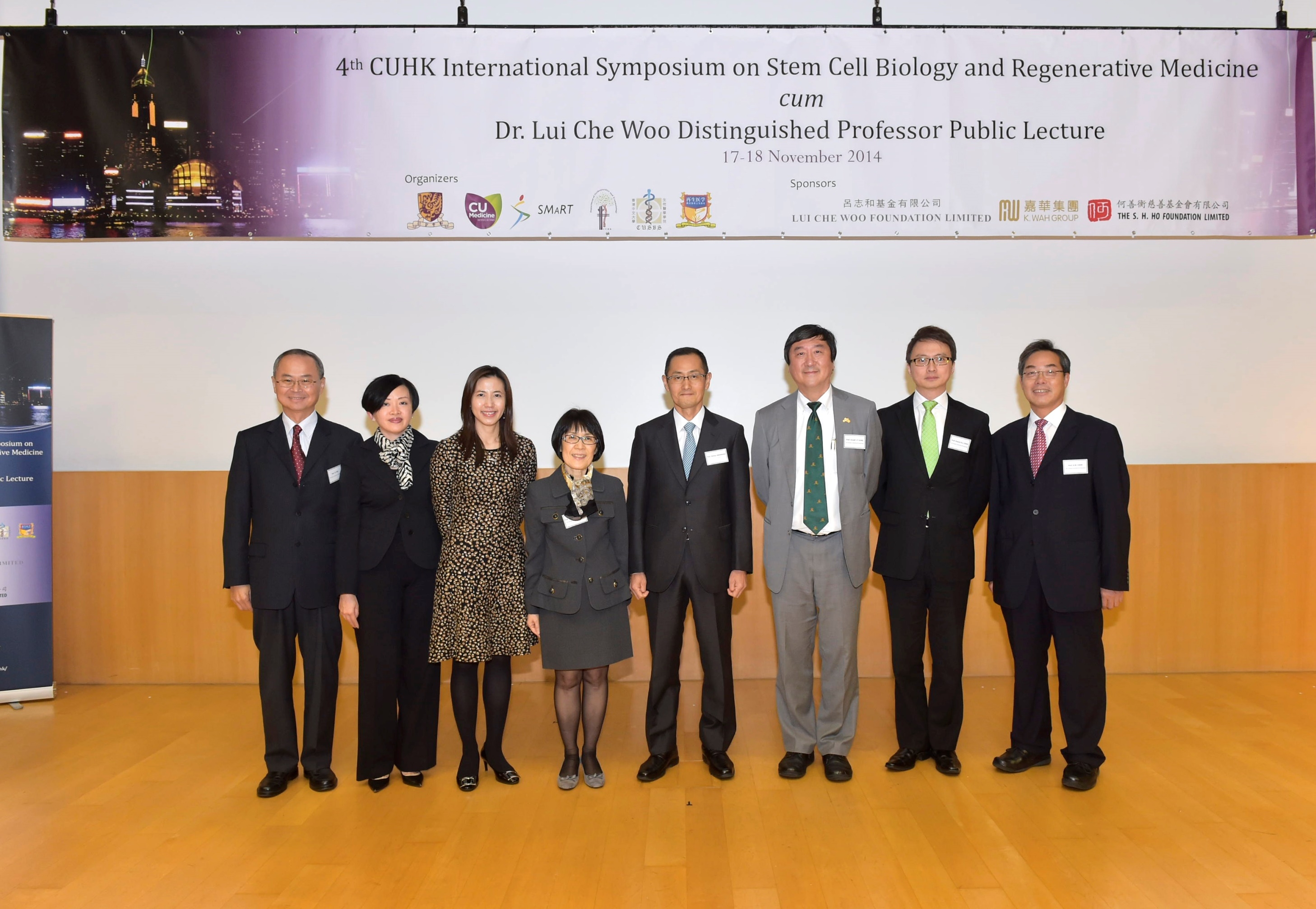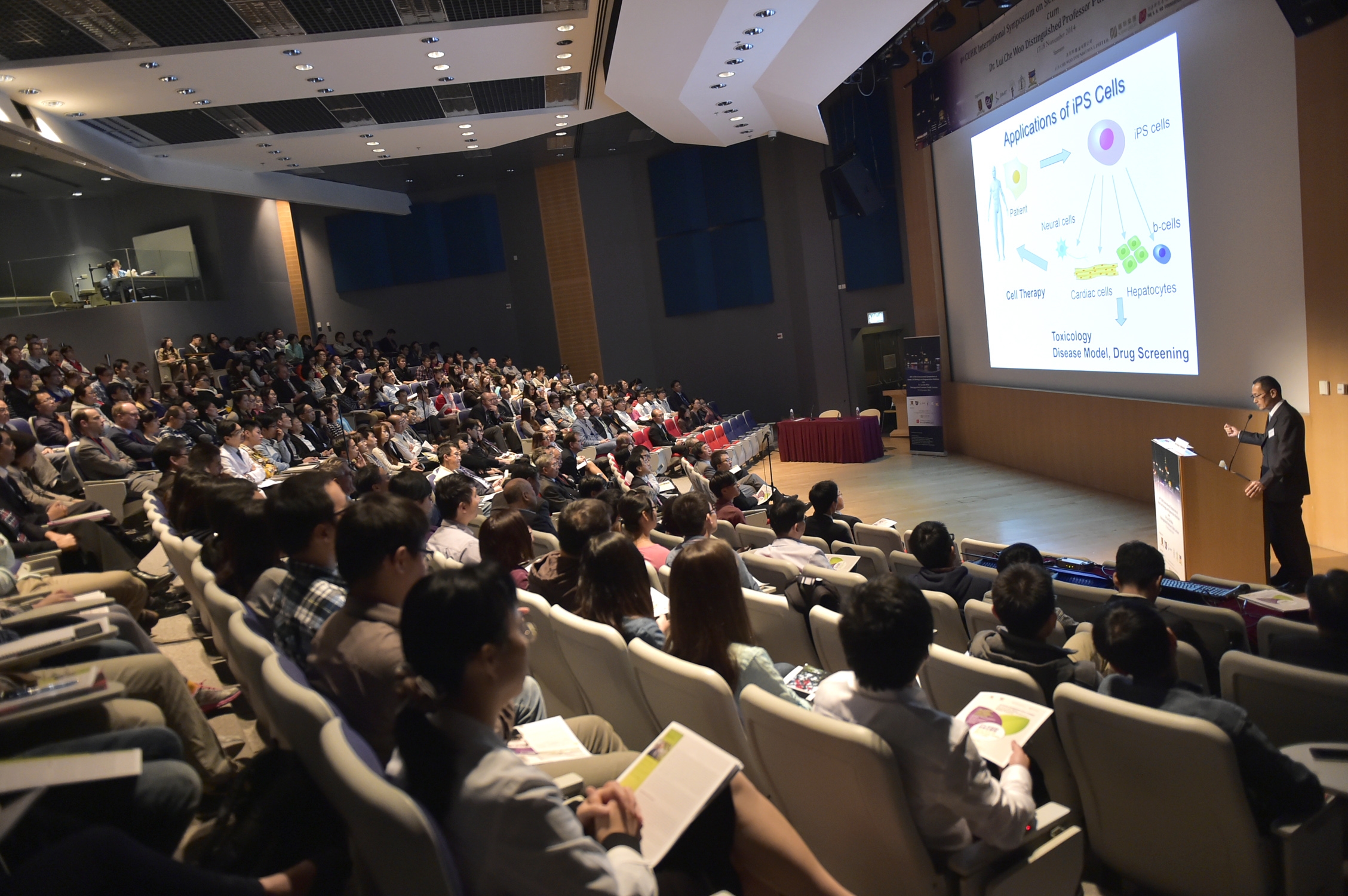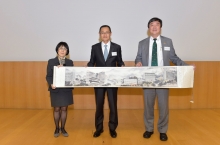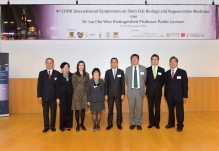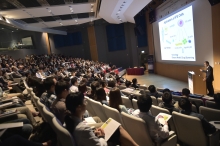News Centre
CUHK Presents Dr. Lui Che Woo Distinguished Professor Public Lecture byNobel Laureate Prof. Shinya Yamanaka on ‘New Era of Medicine with iPS Cells’
Prof. Shinya Yamanaka, Nobel Laureate in Physiology or Medicine 2012, Shaw Laureate in Life Science and Medicine 2008 and currently Director of the Center for iPS Cell Research and Application in Kyoto University, was invited by the Lui Che Woo Institute of Innovative Medicine at Faculty of Medicine of The Chinese University of Hong Kong (CUHK) to be Dr. Lui Che Woo Distinguished Professor and deliver a public lecture on ‘New Era of Medicine with iPS Cells’ yesterday (17 November). Over 300 guests including Prof. Joseph J.Y. Sung, Vice-Chancellor and President, CUHK; Prof. Fanny M.C. Cheung and Prof. T.F. Fok, Pro-Vice-Chancellors and Vice-Presidents, CUHK; Prof. Francis K.L. Chan, Dean of the Faculty of Medicine and Director of the Lui Che Woo Institute of Innovative Medicine, CUHK; Prof. Chan Kai Ming, Convenor, SMART theme of the Institute; and representatives of the Lui Che Woo Foundation Limited attended the lecture.
Induced pluripotent stem cells (iPSCs) were originally generated from mouse and human skin fibroblasts by introducing four specific transcription factor genes. Since iPSCs have the ability to proliferate almost indefinitely and differentiate into multiple lineages, they are thought to have great potential for medical and pharmaceutical applications. These iPSCs and the subsequently differentiated target cells / tissues could provide unprecedented opportunities in regenerative medicine, disease modelling, drug screening, and personalized medicine.
Another attractive feature of iPSCs is that they can be generated from any individual including patients. Professor Yamanaka and his research team announced the successful generation of mouse iPS cells in 2006 and of human iPS cells in 2007, surmounting the ethical use of human embryos and problems with tissue rejection after implantation.
Professor Yamanaka’s research aims to standardize iPSC technology for the preparation of clinical grade iPSCs by providing clear guidelines for cell sources and induction factors, along with reliable methods for quality control. iPSC studies have recently shown major progress in conditions, including corneal disease, blood diseases and Parkinson’s disease, suggesting more iPSC-based regenerative medicine in the future.
With his prominent deeds and discoveries, Professor Yamanaka received many awards including The Shaw Prize in Life Science and Medicine in 2008, Albert Lasker Basic Medical Research Award (US) in 2009, 100th Imperial Prize and Japan Academy Prize (Japan) in 2010, 26th Annual Kyoto Prize in Advanced Technology and Nobel Prize in Physiology or Medicine 2012. He was also selected as a foreign associate of the National Academy of Sciences (US) in 2011.
About Dr Lui Che Woo Distinguished Professor Public Lecture
With the generous support of the Lui Che Woo Foundation Limited, the Lui Che Woo Institute of Innovative Medicine was established in 2012 under the Faculty of Medicine at CUHK which is dedicated to the advancement of three focused research themes, namely BRAIN (Brain Research And Innovative Neuroscience), SMART (Sports Medicine And Regenerative Technology) and CARE (Cardiovascular Advancement, Research and Education). These research themes involve interdisciplinary teams of researchers from other faculties of the University as well as international research partners to explore cutting edge advances in the knowledge frontiers. Each year, a prominent scientist in the field of BRAIN, SMART or CARE will be invited for scholarly exchange and delivery of a public lecture. In January 2014, Prof. Steven C. Cramer, Vice-Chair of Research, Department of Neurology, School of Medicine, University of California, Irvine in USA was invited to speak on ‘Brain Repair after Stroke’, with the objective of promoting health education in the community.
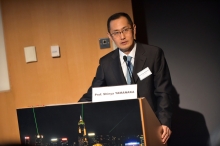
Prof. Shinya Yamanaka, Nobel Laureate in Physiology or Medicine 2012, Shaw Laureate in Life Science and Medicine 2008, and Director of the Center for iPS Cell Research and Application in Kyoto University, has been invited to be Dr. Lui Che Woo Distinguished Professor and deliver a public lecture on ‘New Era of Medicine with iPS Cells’.
